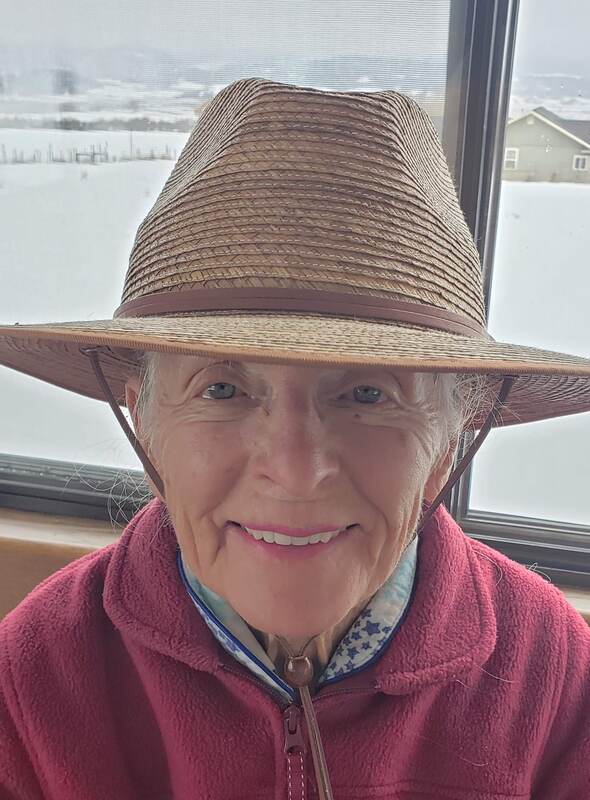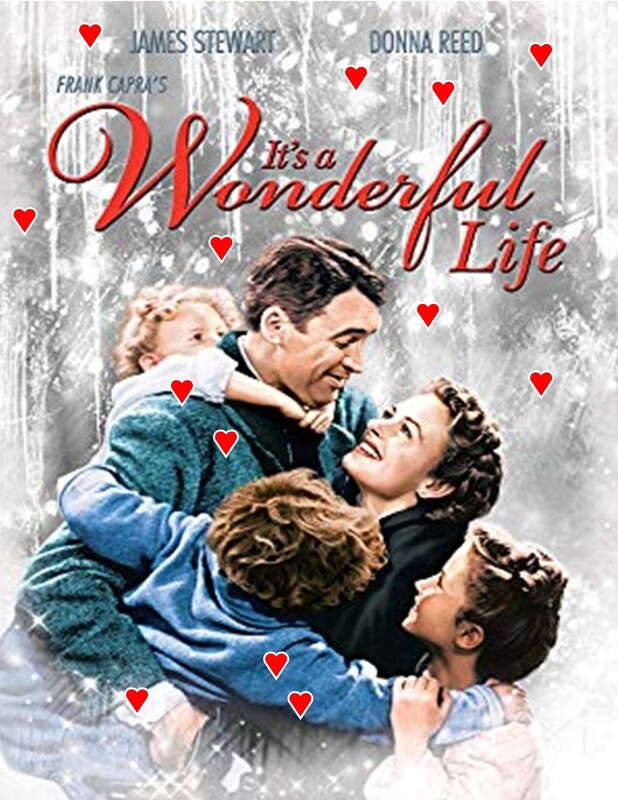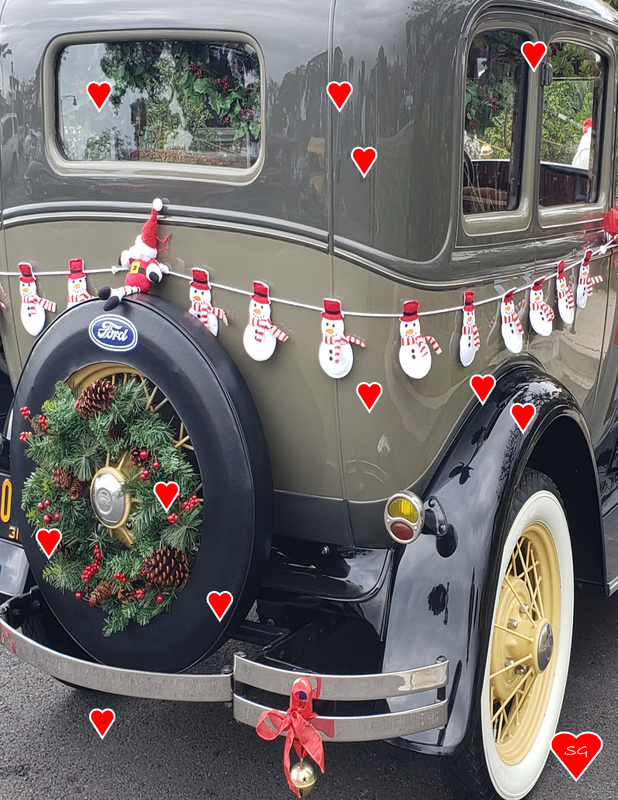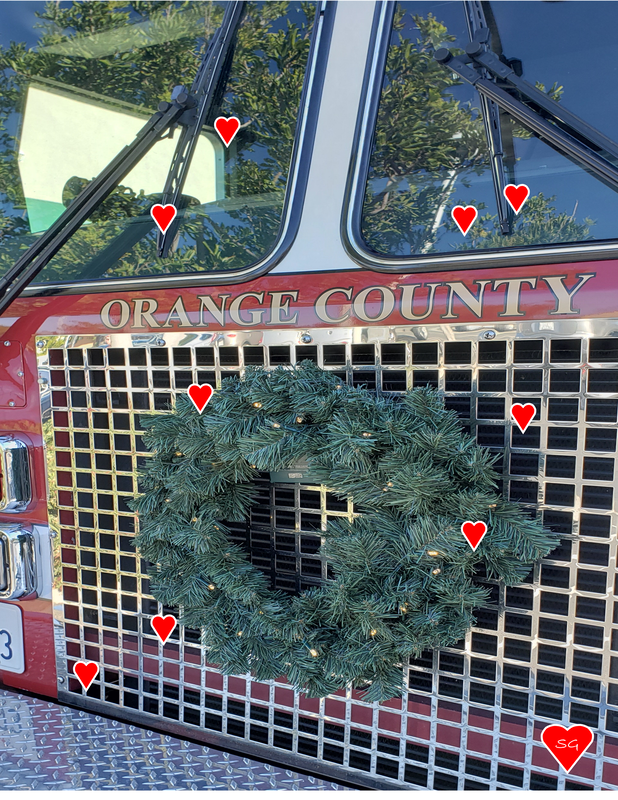|
My mother was born in a world few remember. Workhorses plowed the fields, eggs illuminated prickly nests in the hen house, and a water bucket plunged into the well for fresh water. Winter blizzards were so fierce her father traversed from the house to the barn with a rope wrapped around his waist so he could find his way back. One candy bar was sliced into pieces and doled out to family members, and the outhouse featured Sears catalog pages for toilet paper. During one holiday, the Christmas tree glittered with lit candles clipped to its branches until her anxious mother insisted they be snuffed out.
The Depression was a time of no safety nets, many mouths to feed, and living one or two bad crops away from a foreclosure notice. My grandparents’ letter arrived on crisp paper from the Plaza Hotel in New York City. The mortgage holder, a woman of means, was kind. She said she knew everyone was suffering, and they could work something out. Oblivious to the worries of the world, my mom’s primary years were spent in a one-room school. Her teacher, in charge of a range of students, created self-starters, helping one another and building good habits for the future. Recesses found them throwing a ball over the schoolhouse to their classmates on the other side and pretending, as children have always done, they did not hear the bell signaling the end of break. My mom remembered giggling at the honks from her brother driving by. He would eventually marry the teacher. In the midst of her childhood, an already weary world exploded into war. Victory gardens dotted the country, ration cards were distributed, and war bonds, sold. My mom’s brother and extended family members entered the battle, and tense reports blared from the radio, leaving my mom scrambling to understand. Seeing his worried daughter, her father spent evenings explaining humanity running amuck to her. Complicating but also clarifying the issue were their German-speaking neighbors. The details have faded with time, but these neighbors were charged with a group of German POWs to work their fields. My mother remembers watching the men laboring and their kindness to her. During one rather telling moment, the overseer forgot his gun and asked a POW to fetch it. He did. My mom never forgot these young men, and the world of us-and-them blurred for her. As a child and then a teenager, she looked to the prairie horizon, knowing she would reach beyond it one day. At 17, she left for nurse’s training in the city, and life expanded and stretched. Dorms with strict coming-and-going policies, one public phone shared by everyone, and warnings when a man was on the floor, she remembered fondly. There were the items of women drying in the bathroom and baskets of clothes to be ironed, funding her education. Hospital rounds taught her the complex realities of pain and tragedy, and my mom resolved to be a helper in life. Even with the ravages of dementia, she remembered meeting my dad. She had been tired, not wanting to go to the dance, but changed her mind. Like the lyrics from Some Enchanted Evening, they spotted each other “across a crowded room.” Both had stars in their eyes, ringed by her dorm mates admiring his Hollywood good looks from the windows. When recounting this story, my mom always said, “It was meant to be.” After a small wedding, summer found them traveling to a remote Idaho mining camp, a bumpy 40-50 miles from civilization. Dad worked underground; my 21-year-old mom was the camp nurse and the only medical professional on-site. There were no phones, so a knock on the door, day or night, could indicate a whole array of potential disasters. In the winter, they returned to college housing, and my mom supported my dad as he finished his engineering degree. I returned with them a few years ago, and their home had been transformed into a fraternity house. The guys invited us inside, and as we looked around, my mom pointed at a corner of a bedroom and said to me,” That is where you were conceived,” to the tittering delight of the frat boys. I was the first child born in the wilds of Idaho, but as more came, my folks settled down on a ranch outside the San Fernando Valley, and my mom ministered to her growing family rather than the sick. She managed the travails of 4 children with love and a sense of humor, serving us hot breakfasts every morning, healthy dinners at night, and telling us to “go to the other restaurant” if there were complaints. I remember my brother making an unfortunate off-color comment and her tackling him as he yelped in laughter. Her resourcefulness was evident in cutting our hair, reupholstering my brother’s car, sewing my prom dresses, and creating a leopard print vest for my brother, the pinnacle of fashion at the time. The holidays brought carefully designed cards with family pictures and the Christmas poem written by my mom. It was a hilarious and heartwarming rhyming compilation of family events from the year. My grandpa said my mom was the best thing that ever happened to our family, and he was right. As a child, I told her she looked like a beautiful fairy and wished I could be just like her. As I got older, I wanted us to be the same age so we could be best friends. In high school, she waited up for me after dates, and we would rehash the events of the evening. It was usually my favorite part of the night. Much later, when I was in the throes of a grisly divorce, she and I walked and talked for hours, trying to make sense of it all. With the stress, the pounds melted off our bodies, rendering us sick and drawn. My fear for my daughter and her fear for hers coursed our veins. As we kids flew the coop, my mom and dad started a new chapter. Exiting the empty nest, they bought a plane and conducted business, visited family, and enjoyed the splendor of our country from 10,000 feet. They moved to a beautiful area outside Jackson Hole, Wyoming, and met new friends. Moonlit cross-country skiing, cookouts, trekking through the mountains, and snowcat rides to Yellowstone highlighted this period. None of us kids could keep track of their whereabouts for a decade. They cruised through the fjords of Norway, walked among penguins in Antarctica, clapped to the tango dancers of Argentina, snorkeled in Tahiti, and so much more. My mom’s motto was to enjoy every minute of every day, and they were doing it. Always concerned about others, generosity and compassion threaded through my mom’s entire life. She taught Sunday School, assisted on school field trips, volunteered in 4-H, helped with the Special Olympics, solicited her children to sponsor her in cancer relays, and so much more. In the Eastern Sierra, she was one of the original volunteers creating a hospice organization for the community and making life better for the dying. When she moved to Wyoming, she was tasked with setting up a library for the growing congregation. She was so effective we joked about her creating a library with a church attached to it. There were also anonymous acts of giving, everyday kindnesses, and unspoken generosity. I know of a few of them, and they still take my breath away. It started with her saying dinner was ready and returning 10 seconds later and again saying dinner was ready. Stories were repeated, items misplaced, and in moments of lucidity, she asked if she was acting goofy. She stopped driving and withdrew from the church and social activities. Emails became shorter, disjointed, and then disappeared altogether. My mom found it difficult to follow conversations and was quieter and withdrawn. She wandered around the house, picking up items and reorganizing them into different spots, making it impossible to find anything. Burners were left on, and a fire ignited in the microwave. We worried about her being trapped outside in the cold Wyoming winter and duct-taped the doorknob so she could not lock it. She forgot how to cook, forgot how to use the phone, and eventually forgot us. No longer able to live in the outback of Wyoming, we brought her to a Memory Care Community near me. Knowing she loved “going somewhere,” I started taking her on scenic drives. In the car, we listened to Nat King Cole, Dusty Springfield, Andy Williams, Neil Diamond, and other musicians, me singing and inserting her name in the lyrics, her clapping and repeating the refrain once in a while. Several times we drove to a lookout with panoramic views of the Pacific, and I turned off the car, opened the windows letting the breeze blow through, and we sat breathing in the world. Sometimes she said she remembered an area, I think to prove to herself or me she was still there. Occasionally, we brought the wheelchair, and I would wheel her to a wharf restaurant. Munching on tacos and sipping wine, she seemed more like herself, and once in a surprising while, she would remember my name. As a child, she was Mom, and later I called her Mom Pom, but as we both grew older, she was Mommy Pie, and 63-year-old me was Baby Pie. I told her how much I loved her, and she told me she loved me back. My mother could forget everything else but not that, never that. As time passed, I realized she had one foot in this world and one foot in the next, and she was gradually slipping. There was nothing I could do. Toward the end, I knew her quality of life had drained away, but it did not matter. How does one live without your touchstone, your essence, your mother? I had seen many friends grapple with this dilemma and wished I had been more compassionate. At the time, I thought this was the way of the world. We cannot live forever. This is how it is supposed to be, and of course, your parents die but losing one’s mom is a big deal. Gripping tributes on Facebook, plaques on benches and walls, a friend donning her mother’s Christmas sweaters for pictures, sentimental tokens of rings, necklaces, and bracelets, and natural phenomena like sunsets, hummingbirds, or flowers sparking a spiritual connection. I realize the paths of grieving are as different as maternal relationships, and I will need to forge my own. I know my mom would be happy I am starting to remember who she was before dementia. Her compromised self is falling away, and I am seeing her again. There is also comfort in knowing she lived exactly as she wanted, and I try to remember her motto of enjoying each day, but mostly I am just trying to figure it out.
20 Comments
Public Domain Dearest Reader,
In the 1946 movie "It's a Wonderful Life," George Bailey has big plans for his future: he's going to see the world and build skyscrapers. As he is saying his final goodbyes and leaving town, his father suffers a fatal heart attack. Knowing the family business, Bailey Building and Loan, will close without his presence, George decides to stay until circumstances improve. As time passes, he attempts to leave again and again but is always thwarted by obligations beyond his control. Eventually, he marries, has a family, and becomes a prominent member of the community. When his bumbling uncle misplaces business funds, George is in danger of bankruptcy and prison. Frustrated with missed opportunities and believing he is better off dead, George decides he wants to die. On the verge of ending it all, George is given a glimpse of what the world would have been without him: his brother, whom he saved from drowning as a child, would have died. Everyone on a military transport, saved by his brother, would have perished because his brother was not there to prevent it. The pharmacist's drunken medication confusion, righted by George, would have killed the patient, and George's wife, never marrying, would have become a frightened old maid. (I know...just go with it!) He learns, although he did not pursue his dreams, he made a massive difference to the people around him, and maybe that was more important. George returns home to find the entire town, whom he has helped through the years, at his home, donating money to keep the Bailey Building and Loan doors open. His brother raises a glass to the crowd: "A toast to my big brother George, the richest man in town." There are a couple themes in this classic movie which remain relevant today: George puts people first. He never achieves his dream of seeing the world because his family and friends needed him. Still, he builds a rich life with deep connections to the people around him, and perhaps that was more important. Life does not go according to plans. George's life did not work out the way he had hoped in his younger years, but he realizes he still has lived a "wonderful life" full of love and meaning. Perhaps we can take away these lessons and apply them to our own Lives Well-Lived! Happy Belated Christmas, dear Reader! "It's a Wonderful Life!" Love, M.J. P.S. Sorry for the late posting. I pulled a George Bailey and put my family and friends first! ;-) Dearest Reader,
Sometimes life throws you a little surprise in the traffic-choked holiday season parking lot. Appreciating it is definitely creating a Life Well-Lived... Happy Holidays! Love, M.J. Dearest Reader,
Down at the Dana Point Harbor, there is an independent coffee shop called Coffee Importers. Every holiday they hang beautiful red and gold star paper lanterns from the rafters in their patio area. The illuminated lamps create a bazaar of glowing color, and it is difficult to stop staring at them. Last year, inspired by their beauty, I ordered a few, especially colorful ones, online. I hung them in a rather dull corner and sent pictures to a friend. She immediately requested the website and ordered her own. I draped them from the ceiling at my parents' home last Christmas, and they are now asking when I am coming back to rehang them. I put them up for my birthday, and my guests wanted to know where I got them. I've even seen them in neighbor's windows. There is a unique and universal appreciation for these paper star lanterns one does not often see in life. Everyone loves them. How can they not be part of a Life Well-Lived? Looking at a constellation of star lanterns, soaking in their beauty, and sharing your appreciation with others. How lovely. Perhaps creating a star lamp garden might be a charming way to nourish your soul for the holidays... Love, M.J. P.S. My favorite lantern spots are: Whirled Planet and Quasimoon. |
AuthorM.J. Minerman writes for spinsters around the world who have "not found their lids and are pursuing lives well-lived." Archives
May 2020
Categories
All
|
Vintage Blog
Contact
Media Packet
We support Rylie's Angels!
#Lonely Bags
Spinster's Guide® is a registered trademark and all rights are reserved.







 RSS Feed
RSS Feed